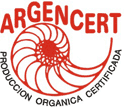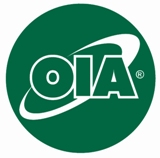Press Releases
October 2013
Sustainable growth in international organic markets
-
Two-figure organic growth in the USA
-
France as model: ambitious goals for organic support
-
Germany: demand developing stronger than growing areas
The international organic sector gathers once a year at BIOFACH, the World’s leading Trade Fair for Organic Food, in Nürnberg. About 2,400 exhibitors are expected again at the 25th anniversary from 12–15 February 2014 – 200 of them at VIVANESS, the International Trade Fair for Natural Personal Care. The trend to organic is sustainable. The sector is growing and thriving continuously. With few exceptions, the worldwide demand was not even affected by more turbulent years of economic activity. An increasingly intensive analysis of ecology and sustainability by people all over the world has a positive impact on sales in the organic trade. Experts and market players are, however, agreed that a political framework and constant general conditions that promote organic agriculture are called for if growth is still to be achieved in all countries in the long term. This creates reliability for those interested in converting just as much as for farmers already using organic methods.
More and more organic products are landing in the shopping baskets of German customers. The trade achieved a record figure of 7 billion EUR (+6 %) in
2012 (Bund ökologische Lebensmittelwirtschaft, BÖLW(German Federation of the Organic Food Industry), Berlin (D)). However, the growing areas are increasing at a less dynamic
rate. Here the organic share rose by only 1.8 %, which created an even larger gap between local farming production and consumption. At the end of 2012,
1.03 million ha of agricultural land in Germany was farmed using organic methods by some 23,000 farms, which is 7.7 % of all farms. The organic share of the growing area increased to 6.2 % in the
same year according to the Federal Ministry for Food, Agriculture and Consumer Protection (BMELV) in Berlin (D).
34,899 producers, processors, importers and trading companies worked in the German organic sector in 2012. One reason for uncertainty among farmers interested in converting to organic is often the
lack of general economic data on support measures. For example, every state has a different level of grants and it is frequently unclear to what extent financial funds are available only for the
conversion period or beyond. In addition, the prices that can be achieved on the market do not always live up to the expectations of the producers, who must often use these revenues to compensate
for the withdrawal of subsidies. A firm general political framework for organic agriculture is therefore one of the major demands of organic associations like BÖLW, the national supporting
organization of BIOFACH.
France: “Ambition Bio 2017” – ambitious future programme
Germany’s neighbour France is preparing to continue the rapid and mostly two-figure organic growth of the past years – with state support. This was confirmed by the French Minister
of Agriculture Stéphane Le Foll at the start of the organic action weeks in June 2013. The minister used the starting event to present his ambitious future organic development programme “Ambition
Bio 2017” to the public. Between 2007 and 2012 the organically farmed area in France has almost doubled from 557,000 to over 1 million ha. 13 % of the land in the Provence-Alpes-Côte d'Azur
region is already used for organic farming. As in the past five years, the organic growing area is to double again by the end of 2017 and the domestic consumption of organic products is to
increase. According to information from Agence Bio, Montreuil-Sous-Bois (F), the number of organic farmers has more than doubled between 2007 and 2012 from 12,000 to 24,500 and the number of
processors and retailers has also developed very positively – from 6,400 to 12,300. Organic sales in the trade were increased from 2 billion to 4.1 billion EUR. Not only French cuisine enjoys a
worldwide reputation, but the use of organic products in the out-of-home sector has also increased for years and is up 7 % to 169 million EUR.
Italy: continuous sales growth
After several years of stagnation at some 1.1 million ha, the organic area in Italy grew again in 2012 by 6.4 % to reach 1,167,362 ha. The total number of organic players in the market was just under 50,000 farmers and companies. This is 3 % up on the previous year. Sales in the organic sector are also increasing continuously. In the first four months of 2013 alone, sales of processed organic products in supermarket chains rose by 8.8 % according to the market research findings of an Ismea/GFK-Eurisko panel. There is still a big north-south divide in Italy: Three out of four organic products (73 %) were bought in North Italy. According to the patron of BIOFACH, the International Federation of Organic Agriculture Movements (IFOAM), Bonn (D), and the Research Institute of Organic Agriculture (FiBL), Frick (CH), sales for the Italian domestic market plus organic exports amount to around 3 billion EUR.
The Netherlands: sales return to two-figure growth rate
in 2012
For the first time in the past years, the organic sector in the Netherlands returned to a two-figure growth rate again in 2012 – sales rose by 14 % from 817 to
934 million EUR. These figures cover sales in the conventional trade, the specialist organic food trade and the catering segment. The organic federation Bionext,
Zeist (NL), estimates sales at about 1 billion EUR if direct marketing, Internet sales and discounters are included. Growth was particularly high in the categories of
fish (+ 97 %), meat (+ 38 %), and coffee and tea with 33 %.
Denmark: stagnation at a high level
Organic food and drinks worth 738 million EUR were sold in supermarkets and department stores in Denmark in 2012, which is about 3 million EUR or 0.5 % more than in 2011. In view of the economic situation, the Danes have been more sensitive than usual to prices in the past years. Large trading chains dropped the prices of their conventional basic foods in this period. According to Hendrik Hindborg, Marketing Manager of Organic Denmark, Arhus (DK), this has created an unnaturally large price difference over organic products, which has led to a drop of 10 – 15 % in sales of organic milk, potatoes and carrots. Hindborg says that the retail trade has, however, indicated that organic sales have risen again by 2 % in the first half of 2013. Denmark and Switzerland are the only two countries in Europe that achieve annual organic sales of more than 150 EUR per head. Denmark had 162 EUR in 2011, Switzerland 177 EUR. However, growth in the organic segment here is generated mainly via out-of-home catering, where sales have risen by 67 % in the past two years. This trend will be stronger in the coming years, as in line with the specified political goals precisely this sector is to achieve an organic product input share of at least 60 % by 2020.
Appreciable organic growth in Poland
Market experts say Poland’s organic market has recently grown by some 20 – 25 % a year. The biggest organic food and health food chain in Poland is Organic Farma Zdrowy (Organic Farm Health). According to CEO S?awomir Ch?o?, sales in the first half of 2013 grew by 8.5 % to 4.8 million EUR. The manufacturer Symbio, for example, registered 22 % growth in the first quarter. Despite this clear trend to market growth in the Polish organic sector, the organic sales share of the complete food market is still only 0.3 %.
USA: two-figure organic growth in 2012
Organic products are not only highly popular in Europe, but on the international scene too. As shown by current figures from the US Organic Trade
Association (OTA), Washington D.C. (USA), organic sales in the United States were up slightly more than 10 % last year. The Organic Industry Survey published by OTA put sales at 31.5 billion US
dollars (23.8 billion EUR). Food accounted for a 92 % share of this, and the share for the non-food sector including natural cosmetics, textiles and food supplements was 8 %. With 40 % of sales
achieved in the conventional trade and
41 % in the specialist trade, the USA has a strong specialist trade.
All exhibitors and their current product information can be found at:
www.biofach.de/exhibitors-products
















